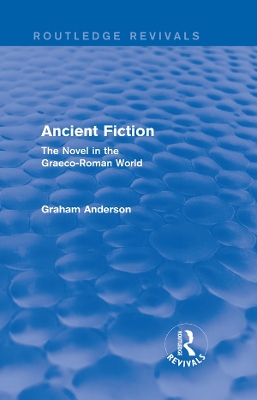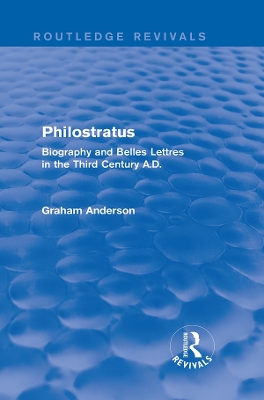Routledge Revivals
2 total works
A number of ancient novelists were skilful storytellers and resourceful literary artists, and their works are often carefully individualised presentations of an ancient and distinguished heritage.
Ancient Fiction, first published in 1984, examines the tales retold by these novelists in light of more recently discovered Near Eastern texts, and in this way offers a tentative solution to Rohde's celebrated problem about the origins of the Greek novel. Among the surprises that emerge are an ancient stratum of the Arabian Nights and a possible Tristan-Romance, as well as an animal Satyricon and a human Golden Ass.
This new framework is, however, incidental to an examination of the achievements of ancient novelists in their own right. In presenting character, structuring narrative, imposing a veneer of sophistication or contriving a religious ethos, these writers demonstrate that their work is worthy of sympathetic study, rather dismissal as the pulp fiction of the ancient world.
This study of Philostratus , first published in 1986, presents the Greek biographer's treatment of both sophists and holy men in the social and intellectual life of the early Roman Empire, which also displays his own distinctive literary personality as a superficial dilettante and an engrossing snob. Through him we gain a glimpse of the rhetorical schools and their rivalries, as well as a bizarre portrayal of the celebrated first-century holy man Apollonius of Tyana, long loathed by his later Christian press as a Pagan Christ.
Rarely does a biographer's reputation revolve round the charge that he forged his principal source. Graham Anderson's account produces new evidence which supports Philostratus' credibility, but it also extends the charges of ignorance and bias in his handling of fellow-sophists.
Philostratus is intended for any reader interested in the social, cultural and literary history of the Roman Empire as well as the professional classicist.

